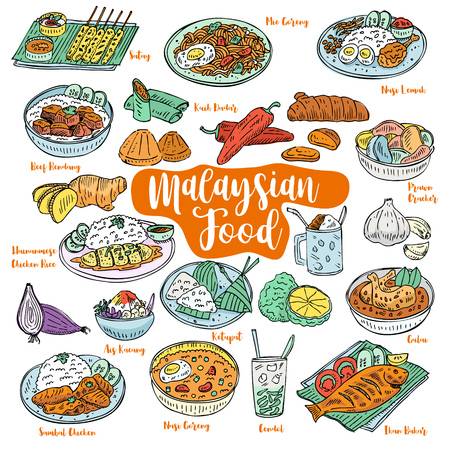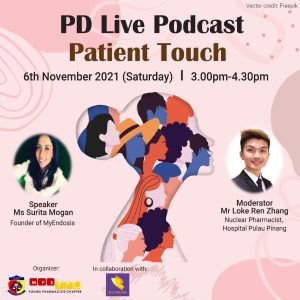Fasting: Benefits & Advices

We have arrived at the time of the year for puasa (Ramadan Fasting)! Annually, billions of Muslims take part in the abstinence of eating foods, drinking liquids and some particular activities from dawn (sahur) to dusk (iftar). The duration of fasting varies from 13 to 18 hours per day, lasting for 28 to 30 days during the holy month of Ramadan.
Ramadan fasting is similar to alternate-day fasting (ADF) where there are intermittent periods of limited or absence of food and water consumption, followed by periods of unrestricted feasting. The only main difference is that water consumption is not allowed during the Ramadan fasting period while ADF allows so in the protocol[1]. Even though Ramadan fasting is one of the five pillars in Islam and a religious obligation to Allah for spiritual purgation and human wellbeing, it has its fair share of health benefits too (supported by scientific evidence)!
TOP 5 HEALTH BENEFITS OF FASTING
1. Weight Loss
Fasting is a great way to shed a few pounds. It is just common sense as fasting is to abstain from food and beverages for a period of time, ultimately decreasing the overall intake of calories per day, which results in weight loss.
It was found that intermittent fasting of continuous calorie restriction of over 3-12 weeks was effective in inducing weight loss and decreasing fat mass by up to 8% and 16% respectively[2]. Weight loss may be attributed by the increased levels of neurotransmitters that enhances metabolism via short-term fasting[3]. A systemic review also found correlations on Ramadan fasting and positive weight loss[4].
2. Promotion of Blood Glucose Control
Due to sedentary lifestyles and unhealthy eating habits, Malaysia has about 16.8% of adults with diabetes (approximately 3.6 million adults)[5]. Ramadan fasting actually brings about a positive effect on blood glucose control for healthy and diabetic patients.
A study on diabetics showed that short-term intermittent fasting is able to decrease blood sugar levels significantly[6]. Additionally, Ramadan fasting is reported to be able to decrease insulin resistance by decreasing serum levels of leptin (hormones in fatty tissues regulating caloric storage)[7] [8]. Inversely, by decreasing insulin resistance, insulin sensitivity increases[9], thus, glucose transportation from the bloodstream to cells are much more efficient.
The potential blood sugar-lowering effects resulted from fasting with increased insulin sensitivity could help to keep blood sugar at optimal levels. Nevertheless, blood glucose control varies between individuals.
3. Improvement in Cardiovascular Health
Heart disease – the leading cause of death worldwide accounting for about 31.5% of deaths around the globe[10]. Cardiovascular diseases occur due to multiple risk factors such as hypercholesterolemia, diabetes, hypertension, obesity and smoking.
A study has shown that Ramadan fasting resulted in a significant reduction of low-density lipoprotein (LDL) A.K.A “bad” cholesterol as well as increased level in “good” cholesterol named high-density lipoprotein (HDL)[11] [12]. Blood LDL cholesterol and triglycerides level are reduced by 25% and 32% respectively in a small research on eight weeks of ADF[13]. Moreover, this particular study found that there is an association between fasting and a lower risk of coronary artery disease in addition to a lower risk of diabetes, where diabetes is a major risk factor for cardiovascular diseases[14].
4. Reduction of Inflammation
Inflammation is a normal immune reaction to fight off infection. However, chronic inflammation can attribute to various autoimmune diseases (rheumatoid arthritis, SLE, cancer) which pose as a threat to the human body.
Fasting is proven to be able to reduce inflammatory markers in some studies. According to some studies, it was noted that fasting is able to help decrease inflammation levels, thus promoting better health. Pro-inflammatory markers such as IL-1β, IL-6 and TNF-α are significantly decreased in one study of healthy individuals with one month of intermittent fasting[15]. Similar results were discovered in another small study where people fasted for 12 hours a day for a month[16].
5. Possible Longevity
Well, who doesn’t want to live longer? Apparently, fasting has a possibility of extending lifespans based on postulations and results on animal research.
In one such study on rats, those who had undergone alternate-day fasting displayed delayed ageing and lived 83% longer than rats that did not fast[17]. Similar findings were reported in several other animal studies and that fasting could be effective in increasing survival rates and longevity[18] [19] [20].There is no consensus on one particular mechanism attributing to possible longevity, instead, there are many pathways that collectively increase the lifespan. In the fasting state, metabolism shifts from glucose to fat burning which decreases oxidative stress and improve longevity[21]. A comprehensive meta-analysis study which was recently conducted has demonstrated that the average life expectancy can significantly increase by fasting[22].
As per discussed, current research is much limited to animal studies. More can be done to understand the positive impacts of fasting on longevity and ageing in human bodies.
Though Ramadan fasting brings about positive benefits, nevertheless, it may incur some minor health concerns but these can be managed with some simple dietary advice.
ADVERSE EFFECTS OF FASTING & WAYS TO CURB THEM
1. Dehydration
As drinking fluids is not permitted during fasting hours, Ramadan fasting is often associated with dehydration due to the low intake of fluids per day. Nevertheless, no detrimental health issues have been attributed to intermittent negative water balance during fasting.
Advice:
- Drink 1 to 1.5L of water after iftar and before sleep.
- Water can be substituted with fruit juices (water-rich fruits eg: watermelon, tomatoes, berries, grapes).
2. Fatigue
Fatigue is often present during fasting. Individuals would need to wake up earlier than usual to prepare for sahur but do not necessarily sleep earlier due to the changes which causes the lack of sleep and affected sleep quality. It was noted that there are increases in visits to the emergency department due to headaches during the month of Ramadan as compared to other times of the year[23]. The possible reasons would be caffeine withdrawal from daily doses of coffee and hypoglycaemia. Lack of performance and energy are very much obstacles to every individual undergoing a fast while working, studying, going up and about their daily activities during Ramadan.
Advice:
- Altering sleeping times to accommodate the difference in waking hours. Try to sleep at least an hour earlier than usual so that quality sleep can still be obtained.
- that caffeine is available in the blood circulation to prevent fatigue-induced headaches due to caffeine withdrawal[24].
- Consuming foods with low glycaemic index (sweet potatoes, oats, barley) could be effective in minimising hypoglycaemia-induced headaches[25].
3. Heartburn
Heartburn is a common problem which is encountered by fasting individuals during Ramadan. On an honest note, who isn’t excited to dive into a large meal after an average 12-hour fast? A seemingly normal looking plate of fried chicken and burger would look like a Michelin star meal after a long day.

Fried and fatty foods that delay gastric emptying during iftar would increase the chances of heartburn and gastroesophageal reflux disease (GERD).
Advice:
- Avoid bulky, fried and fatty foods to prevent heartburn.
- Reduce the consumption of spicy dishes and caffeinated drinks to improve heartburn symptoms. If heartburn persists, an antacid (magnesium trisilicate, aluminium hydroxide gel, calcium carbonate) is proven to be effective in relieving the symptoms. Examples of antacids: Gaviscon ®, Maalox ®
- Avoid lying down/supine position after meals.
4. Overeating

The beauty of a multiracial, multiethnic country like Malaysia may somehow be also be one of its weakness. We, as ‘anak Malaysia’ live for our Nasi Lemak, Roti Canai, Chee Cheong Fun etc. After a long day of fast, Malaysians would be eager to reward ourselves with treats and a scrumptious meal. Plus, with all the delectable sweet kuih muih before, during and after Hari Raya Aidilfitri…
Fasting: Are we really reducing our total calories? If not careful, overeating can be a bothersome issue to curb during fasting. Fasting can be beneficial if wholesome meals with appropriate nutritional values are taken but with the high amount of sugar, salt and fats present in the Malaysian cuisines, things could take a turn for the worse for our health.
Advice:
- Enjoy modest nutritional meals and not heavy meals every day.
- Control the amount of sweet delicacies (kuih raya and cookies) taken especially for diabetic patients.
Martin Luther King once said that, “The quality, not the longevity, of one’s life is what is important”. Even with that said, humans would still want to live a long life, to see our generations blossom and to enjoy the fruits of our labour. Hence, it is important while we conduct Ramadan fasting to improve spiritually, we must not forget to adhere to healthy lifestyles physically too!
Have a fruitful and blessed Ramadan!
References:
[1] Venegas-Borsellino, C., Sonikpreet, & Martindale, R. (2018). From Religion to Secularism: the Benefits of Fasting. Current Nutrition Reports, 7(3), 131-138. https://doi.org/10.1007/s13668-018-0233-2
[2] Varady, K. (2011). Intermittent versus daily calorie restriction: which diet regimen is more effective for weight loss?. Obesity Reviews, 12(7), e593-e601. https://doi.org/10.1111/j.1467-789x.2011.00873.x
[3] Zauner, C., Schneeweiss, B., Kranz, A., Madl, C., Ratheiser, K., & Kramer, L. et al. (2000). Resting energy expenditure in short-term starvation is increased as a result of an increase in serum norepinephrine. The American Journal Of Clinical Nutrition, 71(6), 1511-1515. https://doi.org/10.1093/ajcn/71.6.1511
[4] Sadeghirad, B., Motaghipisheh, S., Kolahdooz, F., Zahedi, M., & Haghdoost, A. (2012). Islamic fasting and weight loss: a systematic review and meta-analysis. Public Health Nutrition, 17(02), 396-406. https://doi.org/10.1017/s1368980012005046
[5] members, R., & Pacific, W. (2020). Members. Idf.org. Retrieved 14 May 2020, from https://idf.org/our-network/regions-members/western-pacific/members/108-malaysia.html.
[6] Arnason, T., Bowen, M., & Mansell, K. (2017). Effects of intermittent fasting on health markers in those with type 2 diabetes: A pilot study. World Journal Of Diabetes, 8(4), 154. https://doi.org/10.4239/wjd.v8.i4.154
[7] Boden, G., Chen, X., Mozzoli, M., & Ryan, I. (1996). Effect of fasting on serum leptin in normal human subjects. The Journal Of Clinical Endocrinology & Metabolism, 81(9), 3419-3423. https://doi.org/10.1210/jcem.81.9.8784108
[8] Harvie, M., Pegington, M., Mattson, M., Frystyk, J., Dillon, B., & Evans, G. et al. (2010). The effects of intermittent or continuous energy restriction on weight loss and metabolic disease risk markers: a randomized trial in young overweight women. International Journal Of Obesity, 35(5), 714-727. https://doi.org/10.1038/ijo.2010.171
[9] Heilbronn, L., Civitarese, A., Bogacka, I., Smith, S., Hulver, M., & Ravussin, E. (2005). Glucose Tolerance and Skeletal Muscle Gene Expression in Response to Alternate Day Fasting. Obesity Research, 13(3), 574-581. https://doi.org/10.1038/oby.2005.61
[10] Benjamin, E., Blaha, M., Chiuve, S., Cushman, M., Das, S., & Deo, R. et al. (2017). Heart Disease and Stroke Statistics—2017 Update: A Report From the American Heart Association. Circulation, 135(10). https://doi.org/10.1161/cir.0000000000000485
[11] Adlouni, A., Ghalim, N., Benslimane, A., Lecerf, J., & Saïle, R. (1997). Fasting during Ramadan Induces a Marked Increase in High-Density Lipoprotein Cholesterol and Decrease in Low-Density Lipoprotein Cholesterol. Annals Of Nutrition And Metabolism, 41(4), 242-249. https://doi.org/10.1159/000177999
[12] Mandle, K., Prashant, V., & Sahu, G. (2019). Comparison of fasting and non-fasting serum lipid profile in healthy population. International Journal Of Research In Medical Sciences, 7(3), 790. https://doi.org/10.18203/2320-6012.ijrms20190924
[13] Bhutani, S., Klempel, M., Berger, R., & Varady, K. (2010). Improvements in Coronary Heart Disease Risk Indicators by Alternate-Day Fasting Involve Adipose Tissue Modulations. Obesity, 18(11), 2152-2159. https://doi.org/10.1038/oby.2010.54
[14] Horne, B., May, H., Anderson, J., Kfoury, A., Bailey, B., & McClure, B. et al. (2008). Usefulness of Routine Periodic Fasting to Lower Risk of Coronary Artery Disease in Patients Undergoing Coronary Angiography. The American Journal Of Cardiology, 102(7), 814-819.e1. https://doi.org/10.1016/j.amjcard.2008.05.021
[15] Faris, “., Kacimi, S., Al-Kurd, R., Fararjeh, M., Bustanji, Y., Mohammad, M., & Salem, M. (2012). Intermittent fasting during Ramadan attenuates proinflammatory cytokines and immune cells in healthy subjects. Nutrition Research, 32(12), 947-955. https://doi.org/10.1016/j.nutres.2012.06.021
[16] Aksungar, F., Topkaya, A., & Akyildiz, M. (2007). Interleukin-6, C-Reactive Protein and Biochemical Parameters during Prolonged Intermittent Fasting. Annals Of Nutrition And Metabolism, 51(1), 88-95. https://doi.org/10.1159/000100954
[17] Goodrick, C., Ingram, D., Reynolds, M., Freeman, J., & Cider, N. (1982). Effects of Intermittent Feeding Upon Growth and Life Span in Rats. Gerontology, 28(4), 233-241. https://doi.org/10.1159/000212538
[18] Honjoh, S., Yamamoto, T., Uno, M., & Nishida, E. (2008). Signalling through RHEB-1 mediates intermittent fasting-induced longevity in C. elegans. Nature, 457(7230), 726-730. https://doi.org/10.1038/nature07583
[19] Sogawa, H., & Kubo, C. (2000). Influence of short-term repeated fasting on the longevity of female (NZB×NZW)F1 mice. Mechanisms Of Ageing And Development, 115(1-2), 61-71. https://doi.org/10.1016/s0047-6374(00)00109-3
[20] Goodrick, C., Ingram, D., Reynolds, M., Freeman, J., & Cider, N. (1983). Differential Effects of Intermittent Feeding and Voluntary Exercise on Body Weight and Lifespan in Adult Rats. Journal Of Gerontology, 38(1), 36-45. https://doi.org/10.1093/geronj/38.1.36
[21] Mercken, E., Carboneau, B., Krzysik-Walker, S., & de Cabo, R. (2012). Of mice and men: The benefits of caloric restriction, exercise, and mimetics. Ageing Research Reviews, 11(3), 390-398. https://doi.org/10.1016/j.arr.2011.11.005
[22] Swindell, W. (2012). Dietary restriction in rats and mice: A meta-analysis and review of the evidence for genotype-dependent effects on lifespan. Ageing Research Reviews, 11(2), 254-270. https://doi.org/10.1016/j.arr.2011.12.006
[23] Swindell, W. (2012). Dietary restriction in rats and mice: A meta-analysis and review of the evidence for genotype-dependent effects on lifespan. Ageing Research Reviews, 11(2), 254-270. https://doi.org/10.1016/j.arr.2011.12.006
[24] Awada, A., & Jumah, M. (1999). The First-of-Ramadan Headache. Headache: The Journal Of Head And Face Pain, 39(7), 490-493. https://doi.org/10.1046/j.1526-4610.1999.3907490.x
[25] Hufnagl, K., & Peroutka, S. (2002). Glucose regulation in headache: implications for dietary management. Expert Review Of Neurotherapeutics, 2(3), 311-317. https://doi.org/10.1586/14737175.2.3.311
The opinions expressed in the article are the writer’s own and do not reflect the view of MPS YPC.













